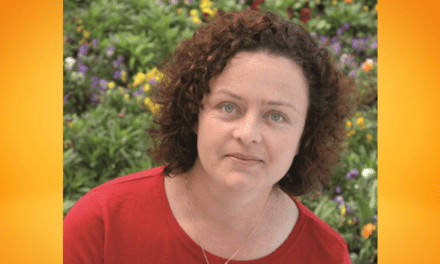When establishing a freelancing business, it’s critical to exercise thought processes above and beyond our basic professional skill set. Business decisions should also be underpinned by sound research and planning in the following areas:
Knowing your starting point for offering services
Knowing your starting point for offering services is vital for any successful business enterprise and helps define the benefits you can offer future customers. The accepted wisdom in industry says that having specific knowledge or expertise can make one stand out from the crowd and make it easier to find work. Beginning with a select group of clients, you may draw upon knowledge and skills gained from personal hobbies, interests or work experience to offer insights into niche topics. Your training will demonstrate your understanding of the different levels of services and help you decide which ones you’ll focus on.
Defining your target clients and understanding their needs
Defining your target clients and understanding their needs is necessary due to the sheer scale and size of the freelance work. You may choose to work for one or more types of clients. However, a focus on a specific type of customer may initially make it easier to research a client’s likely expectations and what they need to know about your client services. For instance, you may adjust your language and prepare customised messages for corporate clients who expect you to understand technical jargon and the tasks linked to each deliverable. On the other hand, you can use a more general approach with individuals and students. Whatever client group you focus on, you’ll also need to emphasise your soft skills (e.g., professional competence, training, problem-solving capabilities, work ethic, communication skills, etc.) to help you stand out from the competition.
Having a positive attitude and realistic time-frame for business development
Having a positive attitude and realistic time-frame for business development is essential when starting any new concern and requires belief in yourself and your ability to add value for prospective customers. Building personal resilience will see you through ups and downs as your business grows. Emphasising positivity and flexibility in your communications gives people confidence you can be a problem-solver for their business. Even with little experience as a new freelancer, you will know more about your field than most people, and your prospective customers will view you as the expert. Most small businesses take time to grow, and it may take a few years to get consistent results and a reliable flow of clients. Modifying your messages and doing ongoing research on marketing strategies will keep your brand fresh and exciting to new groups of customers.
Finding new clients and developing a sound client base
Finding new clients and developing a sound client base requires decisions about the services you’ll offer, who your clients will be, and how you’ll find them. As mentioned earlier, your training will have provided insights into the levels of services you are most comfortable with and your preferred niches.
It’s necessary to complete thorough research to identify where your prospective clients are located and prepare a detailed marketing plan for connecting with them through appropriate communication channels. Strategies may involve checking online or printed listings of industry groups, traditional marketing via online directories or classified advertising, developing your website or joining social media groups, and networking with professional associations. When you get some clients, always ask for feedback and referrals to others, as these activities can help you gain a positive reputation and help build your profile via word of mouth.
Identifying opportunities for growth: local, regional and global
Identifying opportunities for growth: local, regional and global are essential considerations to ensure your marketing is an ongoing process and will build momentum for your business.
- Local marketing is often an excellent place to start as you will already be familiar with customers’ needs, and they’ll be easy to reach. Confining your marketing to your immediate suburb, town, or city may also be an economical option. If you have a limited budget, you can minimise costs if you are prepared to put in the hard yards in person, cold-calling with your business cards, doing brochure drops and mail-outs. Marketing strategies may also involve developing an online or in-person profile with local communities, networking with writing groups, contacting schools and tertiary institutions, libraries, local newspapers, advertising agencies and printers, or other businesses and organisations requiring internal and external communications checks.
- Regional marketing extends beyond your local environment to target potential customers in other geographic regions. This approach means expanding your reach to broader market segments like businesses, organisations and institutions with a national presence and specialised interests. To get a wider distribution of important messages about your services, you may need to develop a website and consider joining professional online networks, writing or editing associations or attend networking events and conferences in other regions.
- Global marketing entails detailed research into selecting the right countries and channels to reach potential clients. Many companies have international offices and distribute many projects offshore. Having a suitably branded website and online social media profile may be helpful for future clients to get a quick overview of your skillset and leverage your knowledge/training. Depending on your linguistic skillset, you may also be able to expand your reach into English-speaking, bi-lingual and other world language markets.
If you are interested in expanding your capabilities and setting up your freelancing business, NZIBS has a range of courses that may be suitable.
Learn how to earn an income working from home
Train for a new job at home, and in your own time. The Institute has been giving adults a second opportunity at a new career since 1991, by teaching people the skills to grow personally and become financially self-reliant. Discover your options. Make choices.










